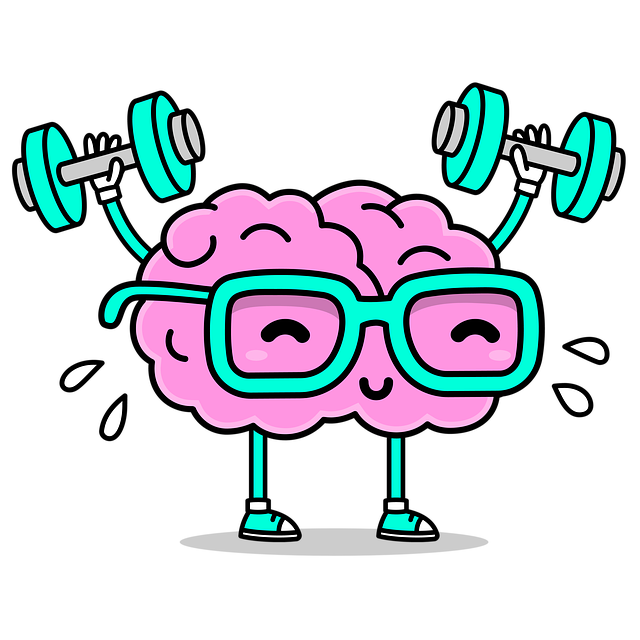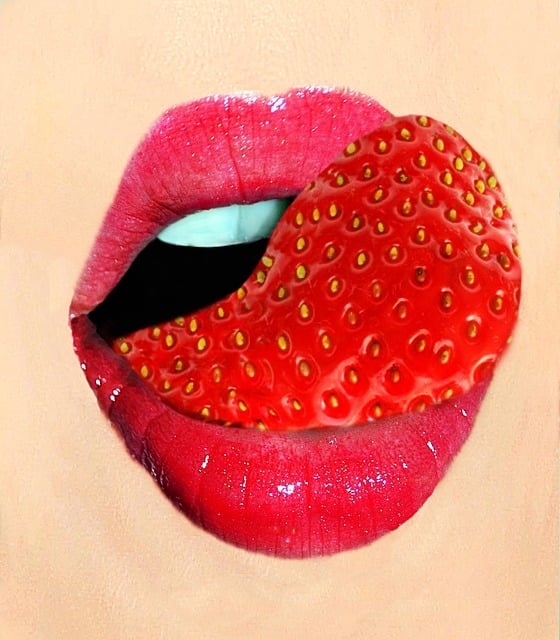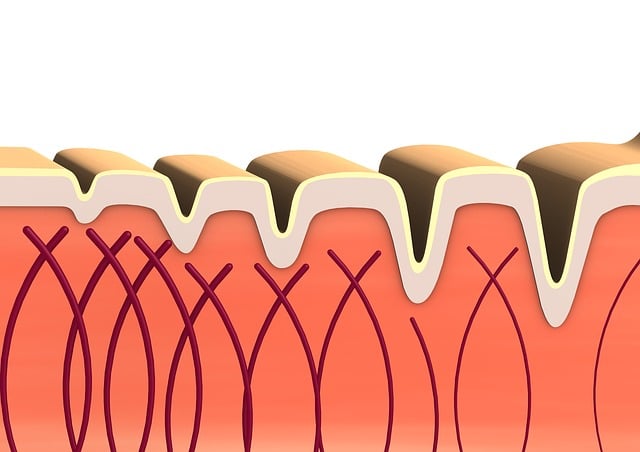Collagen stimulation is a skincare approach targeting age-related collagen loss. As a key structural protein, collagen ensures skin elasticity and youthfulness. Topical applications of specific ingredients, like peptides and vitamin C, encourage the body to produce more collagen, reducing fine lines and improving skin texture. Lifestyle factors such as hydration, diet, exercise, and sun protection also significantly impact collagen levels. Scientifically-backed treatments, including laser therapy and microneedling, induce controlled tissue damage to prompt collagen synthesis. By combining topical treatments with a healthy lifestyle, individuals can achieve tighter, firmer skin and promote overall youthfulness through natural, safe collagen stimulation methods.
“Unveil the secrets of collagen boosting for skin tightening—a natural solution to combat aging. Our skin’s elasticity and firmness rely on collagen, a protein that acts as its structural foundation. With age, collagen production declines, leading to wrinkles and sagging. This article explores effective strategies to stimulate collagen, including understanding its role, deciphering the impact of aging, and delving into scientific approaches, topical treatments, lifestyle changes, and safety precautions. Uncover the power of collagen stimulation for a youthful glow.”
Understanding Collagen: The Skin's Building Block

Collagen is often referred to as the skin’s building block, playing a crucial role in maintaining its elasticity and youthful appearance. It’s a protein that provides structure and support to our skin cells, ensuring they remain firm and supple. However, as we age, our bodies naturally produce less collagen, leading to a decline in skin firmness and an increase in fine lines and wrinkles.
Collagen stimulation is a key concept in skincare, focusing on encouraging the body to create more of this vital protein. Through various topical applications, ingredients can help boost collagen production, reversing some signs of aging and improving overall skin texture. This natural process can result in firmer, smoother skin, making it an attractive solution for those seeking non-invasive ways to enhance their complexion.
Aging and Collagen Depletion: What Happens to Our Skin?

As we age, our skin undergoes natural changes that can lead to a significant loss of collagen, a protein essential for maintaining skin elasticity and firmness. Collagen is the backbone of our skin, providing structure and support. With time, however, the production of new collagen slows down, and existing collagen fibers degrade, causing the skin to lose its tautness and develop fine lines and wrinkles. This natural process, while inevitable, can be accelerated by various external factors such as sun exposure, smoking, and poor diet.
The depletion of collagen results in a loss of skin firmness and elasticity, making it more susceptible to damage. Collagen stimulation becomes crucial at this stage to restore the skin’s youthful appearance. By promoting the production of new collagen, skincare products and treatments can help tighten loose skin, reduce the visibility of age spots, and enhance overall skin texture. This process not only improves the skin’s physical attributes but also boosts its ability to defend against environmental stressors.
Collagen Boosting Strategies: Scientific Approaches

Collagen boosting strategies, centered around collagen stimulation, have emerged as powerful tools in the pursuit of skin tightening and rejuvenation. Scientifically-backed approaches leverage various mechanisms to encourage the production of this vital protein, which forms the structural backbone of our skin. Key methods include topical applications of specific peptides and growth factors known to activate fibroblasts, the cells responsible for collagen synthesis. Additionally, innovative treatments like low-level laser therapy and microneedling stimulate collagen production by inducing controlled tissue damage, prompting the body’s natural repair mechanisms to ramp up collagen generation.
Beyond these technical interventions, lifestyle modifications play a significant role in collagen boosting. Adequate hydration, regular exercise, and a diet rich in essential amino acids and antioxidants create an optimal environment for collagen health. Sun protection is also critical, as UV radiation can impair collagen production and structure, emphasizing the importance of incorporating sunscreen into daily routines. These scientific approaches, combined with lifestyle adjustments, offer comprehensive strategies to enhance collagen levels, leading to improved skin elasticity and a more youthful appearance.
Topical Treatments for Collagen Stimulation

In the quest for achieving a youthful glow and firm skin, topical treatments have emerged as powerful allies in stimulating collagen production. Collagen is the skin’s structural protein, responsible for its elasticity and overall firmness. Various skincare products now incorporate innovative ingredients to boost collagen levels naturally. These treatments often feature active substances like peptides, retinoids, vitamin C, and specific plant extracts. Peptides, for instance, mimic the body’s natural signaling molecules to encourage collagen synthesis. Retinoids, a derivative of vitamin A, have been long-trusted for their ability to exfoliate and stimulate new collagen formation. Additionally, topical antioxidants like vitamin C protect collagen from environmental damage, ensuring its longevity in the skin.
When selecting a collagen-stimulating treatment, it’s crucial to consider your skin type and any specific concerns. Some products are formulated for sensitive skin, while others target deep wrinkle reduction or improved skin texture. Regular use of these topical treatments can lead to noticeable improvements in skin elasticity, reduced appearance of fine lines, and a more youthful complexion.
Lifestyle Changes to Support Collagen Production

Collagen stimulation goes beyond topical creams; it’s significantly influenced by lifestyle choices. Adopting a balanced diet rich in fruits, vegetables, and lean proteins is key. These foods are packed with antioxidants, vitamins (like Vitamin C), and minerals that play crucial roles in collagen production and skin health. Additionally, staying hydrated is vital as water is essential for collagen synthesis and skin elasticity.
Regular exercise also contributes to collagen stimulation. Physical activity increases blood flow, delivering essential nutrients to skin cells and promoting collagen production. Moreover, managing stress levels through practices like yoga or meditation can help regulate cortisol, a hormone linked to collagen breakdown. Together, these lifestyle changes create an optimal environment for enhancing collagen production, leading to improved skin tightness and overall health.
Safety and Precautions: Ensuring Effective and Safe Skin Tightening

When considering collagen boosting treatments for skin tightening, safety and precautions are paramount. Opting for reputable, professionally administered procedures significantly reduces risks. Collagen stimulation methods like microneedling, peptides, and certain lasers can be highly effective in boosting natural collagen production, leading to improved skin elasticity and a tightened appearance. However, these treatments may cause temporary redness, swelling, or sensitivity, so seeking advice from a certified dermatologist is crucial.
Individual responses vary, and what works for one person might not work for another. It’s essential to communicate any concerns or history of skin conditions with your healthcare provider. Regular follow-ups during collagen-boosting treatments help ensure safety, monitor progress, and make adjustments as needed. Remember, effective and safe skin tightening is a collaborative process between you and your dermatologist, focused on achieving natural, lasting results.
